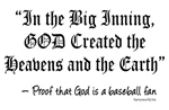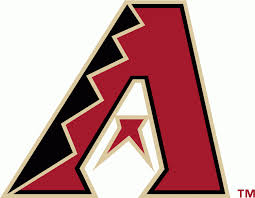Of course, more fuel has been thrown on the proverbial fire over the past week with the announcement that Miller will be placed on the 10- day disabled list with right elbow inflammation. But even if the worst news is ahead for Miller (a potential Tommy John surgery), it is still silly to declare this trade as the worst in baseball history, especially at this moment and time.
The major criticism for this trade which was engineered by Braves GM John Coppolella and Dave Stewart, the general manager of the Diamondbacks at the time, involved the inclusion of former number one overall pick Swanson as part of the deal. The 2015 draftee out of the University of Vanderbilt was rated as MLB's fourth rated prospect coming into 2017, trailing only Andrew Benintendi, Yoan Moncada, and Gleyber Torres.
The truth is, the trade has become an easy criticism because of the season Miller had in 2016. On the heals of a season in which he pitched to a 3.02 earned run average and 3.45 fielding independent pitching (in 2015), the right handed pitcher finished with an atrocious 6.15 ERA and 4.87 FIP last season. In fact, Miller managed to give up more home runs (14) in 2016 than in 2015 (13) in spite of pitching in more than twice the amount of innings in 2015 (just over 205 to 101). There is no doubt that the Braves did well in acquiring a shortstop who could be a core player for them going forward in exchange for a pitcher who saw his fortunes take a dive south last season.
That being said, it is time to stop calling this the worst trade in baseball history. While Swanson may outperform Miller by himself, it has not happened yet. Many higher rated players have not fit the build at the major league level. And it is not like Swanson can seriously be mentioned in the discussion with other top offensive shortstops. He does not have the power of Corey Seager, Francisco Lindor, or Carlos Correa. That being said, he does look strong defensively and is coming off a stretch where he hit .302 over 38 games with the Braves last season. If Swanson becomes a good player and not a great player, it is hard to call this trade as much of a steal as many do right now.
The Braves also acquired Inciarte as part of this deal. While he may be the team's center fielder of the future, there clearly was not much room for him in Arizona. The Diamondbacks have their CF in AJ Pollack and have a number of better power hitting options to play in right and left field. Exactly where was Inciarte going to play? In fact, the Diamondbacks were so high on Inciarte that they left him unprotected in the 2012 rule 5 draft and lost him to the Philadelphia Phillies. (The Phillies returned him back to Arizona before the start of the 2013 season.) Though Blair was once a more highly touted prospect, his status had fallen even before this trade was made.
The depths of how bad this trade is for Arizona (or how good it will be for Atlanta) will be determined by one thing, whether either team (mostly Atlanta) wins a World Series Championship in the near future. The same can be said about the New York Mets, who acquired Noah Syndergaard and Travis d'Arnaud in exchange for RA Dickey, who just so happens to currently pitch for the Braves. If the Braves do not win a World Series, this trade becomes less significant. The Cleveland Indians got Cliff Lee, Brandon Phillips, and Grady Sizemore from the Montreal Expos for Bartolo Colon (who in another totally unrelated note, also pitches for the Braves). And though all three made the All Star team during their career (though Phillips did not as a member of the Indians), the Indians were not a force in the postseason, let alone coming close to a World Series Championship as a result of this trade. Ryne Sandberg was dealt to the Chicago Cubs from the Philadelphia in a similarly lopsided trade after the 1983 season (with Larry Bowa in exchange for Ivan DeJesus), but the Cubs did not win the World Series either. Neither did the Houston Astros after acquiring Curt Schilling, Steve Finley, and Pete Harnisch from the Baltimore Orioles for Glenn Davis. Many have lauded the trade that sent Delino DeShields to the Los Angeles Dodgers for Pedro Martinez, but what year did the Montreal Expos win the World Series as a result of this?
Pedro was traded to the Boston Red Sox for Carl Pavano and Tony Armas, a trade that did result in a World Series Championship for Boston, the first in 86 years. Ironically, Schilling was on that same team, himself being traded there from Arizona for three young pitchers and a minor league outfielder. When it comes to the worst trades in baseball history, they logically should result in the winning team (in the trade) winning at least one World Series Championship. So, once again, unless the Braves win a World Series with Swanson, Inciarte, and Blair, it will go down in history as just another trade.
In the age of social media and over analysis, it is easy to make something seem to be a bigger deal than it really is. To conclude this argument, I would like to remind the reader that the Cubs won a World Series relatively soon after they acquiring Jake Arrieta from the Orioles in a lobsided trade for Scott Feldman and Steve Clevenger, Baltimore won two World Series after it acquired Frank Robinson from the Reds for Milt Pappas, and the New York Yankees won four World Series after adding Babe Ruth in a trade from Boston for $125,000. If you want an example of a similar trade resulting in a World Series, the Kansas City Royals won it all with Lorenzo Cain and Alcides Escobar, both of whom were acquired from the Milwaukee Brewers for Zack Greinke, who oddly enough, currently pitches for the same Arizona Diamondbacks. Those were transcending trades- the Miller for Swanson, Inciarte, and Blair... not so much at this moment and time. But I will stand corrected the day the Braves win the World Series.



 RSS Feed
RSS Feed
